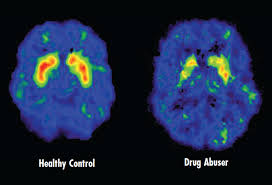When you do drugs, you get addicted. When you’re addicted, you can’t resist the urge to use them, no matter how much harm the drugs may cause.
Drug addiction isn’t about just heroin, cocaine, or other illegal drugs. You can get addicted to alcohol, nicotine in cigarettes, opioids (Tramadol, Codeine) and other legal substances.
Addiction is a disease that affects your brain and behavior. At first, you may choose to take a drug because you like the way it makes you feel.
You may think you can control how much and how often you use it. But over time, drugs change how your brain works.
These physical changes can last a long time. They make you lose self-control and can lead you to damaging behaviors.
“Your life is a succession of choices and their consequences, consider your ways”
ALCOHOL
Alcohol is a drug. It is classed as a depressant, meaning that it slows down vital functions—resulting in slurred speech, unsteady movement and distorted perceptions. Other effects on the body include:
Shrinking Brain: Long term exposure will shrink your brain.
Behaviour changes: It can change your typical behavior and leave you without mental clarity to make smart decisions.
Dependence: This varies from one person to another. Alcohol leaves you physically dependent on it and takes away your relationships and work ability.
Destroys body organs: Alcohol can damage your heart, liver, pancreas and cause lungs infection. Excessive alcohol is known to cause cancer.
CANNABIS
Cannabis, also known as marijuana among other names, is a psychoactive drug from the Cannabis plant. It is the most commonly used illegal drug. It can be used for recreation and medical reasons. Some of its effect on the brain and body include:
Weakened immune system: This is due to the effects of tetrahydrocannabinol, which is the main psychoactive chemical in marijuana
Memory Impairment: Marijuana can make it harder for you to focus, learn, and remember things.
Red eyes: The THC in marijuana can cause red eyes due to the expansion of the blood vessels in the eyes.
Increased lung cancer risk: Smoking marijuana may lead to long term lung problems such as cancer.
OPIOIDS
Opioids sometime called narcotics, are medications prescribed by doctors to treat persistent or severe pain. Examples include Codeine, Tramadol, Fentanyl, Hydrocodone, Oxycodone, Oxymorphone, Morphine. The cause the followings:
Sleepiness, constipation, jittery nerves and insomnia
Shallow breathing and decreased heart rate
Dependency and constant craving
Opioid overdose could result in unconsciousness and death
COCAINE
Cocaine, also known as coke, is a strong stimulant most frequently used as a recreational drug. It is commonly snorted, inhaled as smoke, or dissolved and injected into a vein. Mental effects may include loss of contact with reality, an intense feeling of happiness, or agitation.
Psychological dependence: This is very destructive as the user becomes addicted to it.
Hyperactivity: This is capable of causing sudden heart failure.
Brain Haemorrhage, Delirium, Convulsion and stroke
Cerebral Atrophy (wasting of the brain) and impaired thinking
HEROIN
Heroin is deadly and dangerous. It comes from a flower, the opium poppy. Some of the harmful effects of heroin includes:
Change in brain Physiology: Repeated use of heroin changes the physical structure and physiology of the brain, creating long-term imbalances in neuronal and hormonal systems that are not easily reversible
Heroin produces profound degrees of tolerance and physical dependence
Infection of the heart lining and valves, normally due to lack of sterile technique.
Skin infections and abscesses, especially among chronic injectors who suffer scarred or collapsed veins
Possibility of death due to accidental overdose
If you believe your health has been affected by the use of heroin or that you are becoming dependent upon the drug, help is available to help you reduce or stop your use of the drug.
There are many treatment options available that have been proven to help those who have a sincere desire to quit.
There is hope! Call CADAM today on 0817 103 9895

